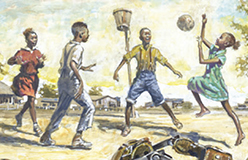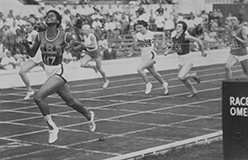Free
Wilma Rudolph never became a professional athlete. (Professional athletes are paid to compete; amateur athletes are not.)
In 1962, she retired from athletic competition. For many years, racial prejudice kept her from receiving the same offers that successful White women athletes had. “I was besieged with money problems,” Rudolph said. “People were always expecting me to be a star, but I wasn’t making the money to live like one. I felt exploited both as a woman and as a Black person.”
Although Rudolph didn’t have a long life (she died in 1994 at the age of 54), she spent it teaching, standing up for justice, and serving others.



